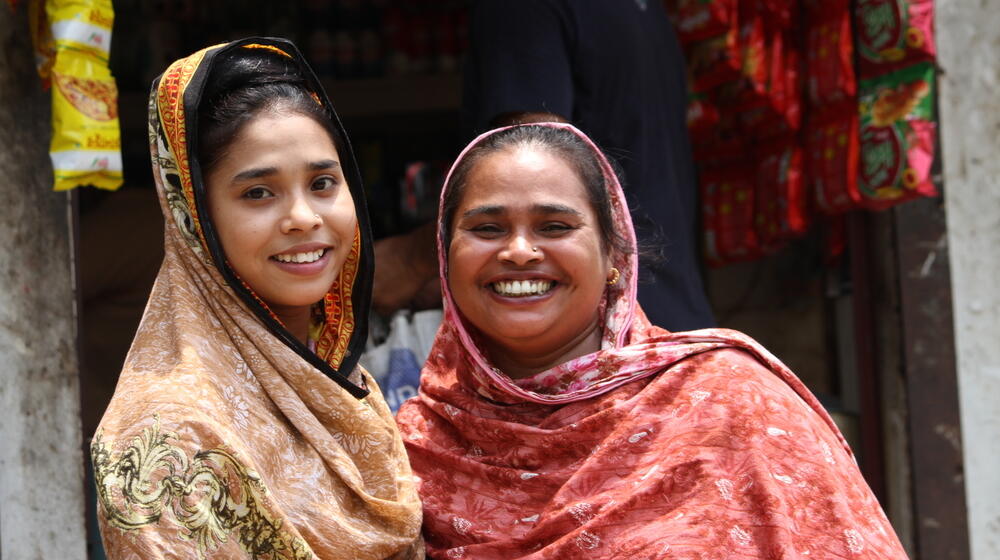”In my village, many people think that menstruation is something dirty. They think a woman should be isolated for three days or not be allowed into the kitchen during their period. In the cities, people’s attitudes have become more progressive. Especially more men have come to realize that menstruation is not a disease, but something natural that women must go through each month.”
This is how Asma Akhter, a 30-year-old widow and a mother of two children from the Duaripara neighbourhood of Dhaka describes how perceptions of menstruation have evolved in Bangladesh during her lifetime.
Despite improvements in access to menstrual products and information, menstruation remains a taboo among many and families with limited finances do not often invest in proper menstrual health management. As a result, women and girls frequently settle for unhygienic items to manage their menstrual flow or stay confined to their homes during their period.
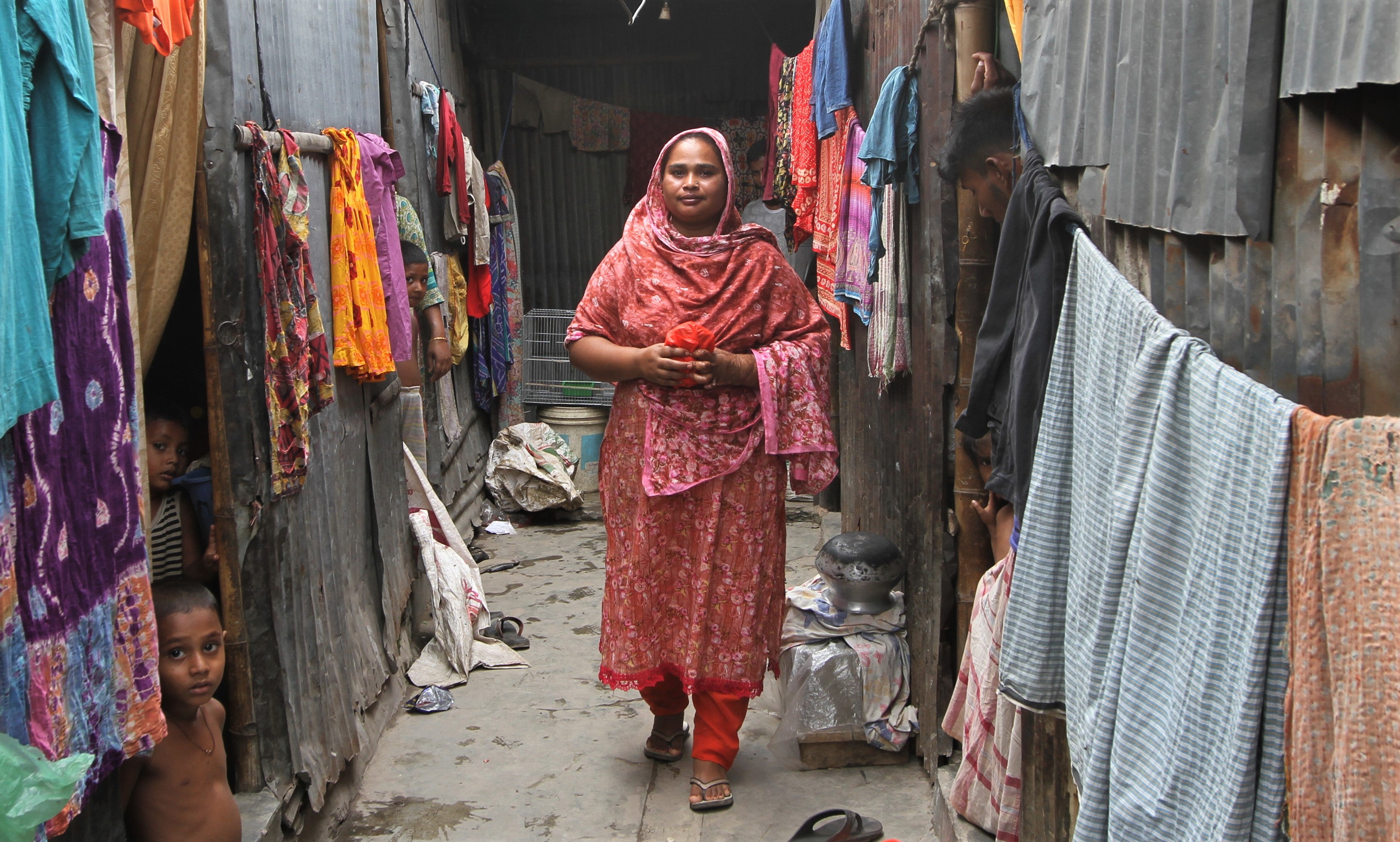
Asma Akther from the Duaripara slum of Dhaka feels that awareness of menstruation has improved in urban areas during her lifetime. Photo: UNFPA Bangladesh/Juho Valta
With funding provided by SIDA and USAID, UNFPA, WFP, BRAC and Concerned Women For Family Development (CWFD) are conducting a joint initiative in Duaripara and Bhashantek slums of Dhaka to improve vulnerable women and girls’ access to menstrual products, information and education.
Each month, 2,756 women and adolescent girls supported by the project receive a text message on their phone, which allows them to redeem two packets of disposable menstrual pads from selected shops nearby them. The women and girls also receive family entitlements of cash and are encouraged by WFP to purchase healthy and nutritious food with it.
Furthermore, Bangladesh still continues to have a high rate of child marriage especially among the more vulnerable population that suffers from poverty. Around 50 per cent of females between the ages of 18 and 24 have married before they turn 18. As part of advocacy measures to prevent child marriage, various information materials were distributed alongside the menstrual pads in this project.
The transaction is completed through an application called “Building Blocks”, which all the shop owners enrolled in the project have on their mobile phones. The application utilizes blockchain technology, which allows UNFPA and its implementing partners to reliably monitor when each of the beneficiaries has received the items assigned to them. The technology also allows individual beneficiaries to receive aid from multiple UN agencies in a single location, instead of having to travel to separate distribution sites and stand in long lines for support.
Recently, the project was voted first place among 110 submissions by country offices at the UNFPA Innovation Expo for the Asia-Pacific region. It became a testimony to how innovations in technology could help solve some of the complex challenges in a country as it undergoes rapid development.
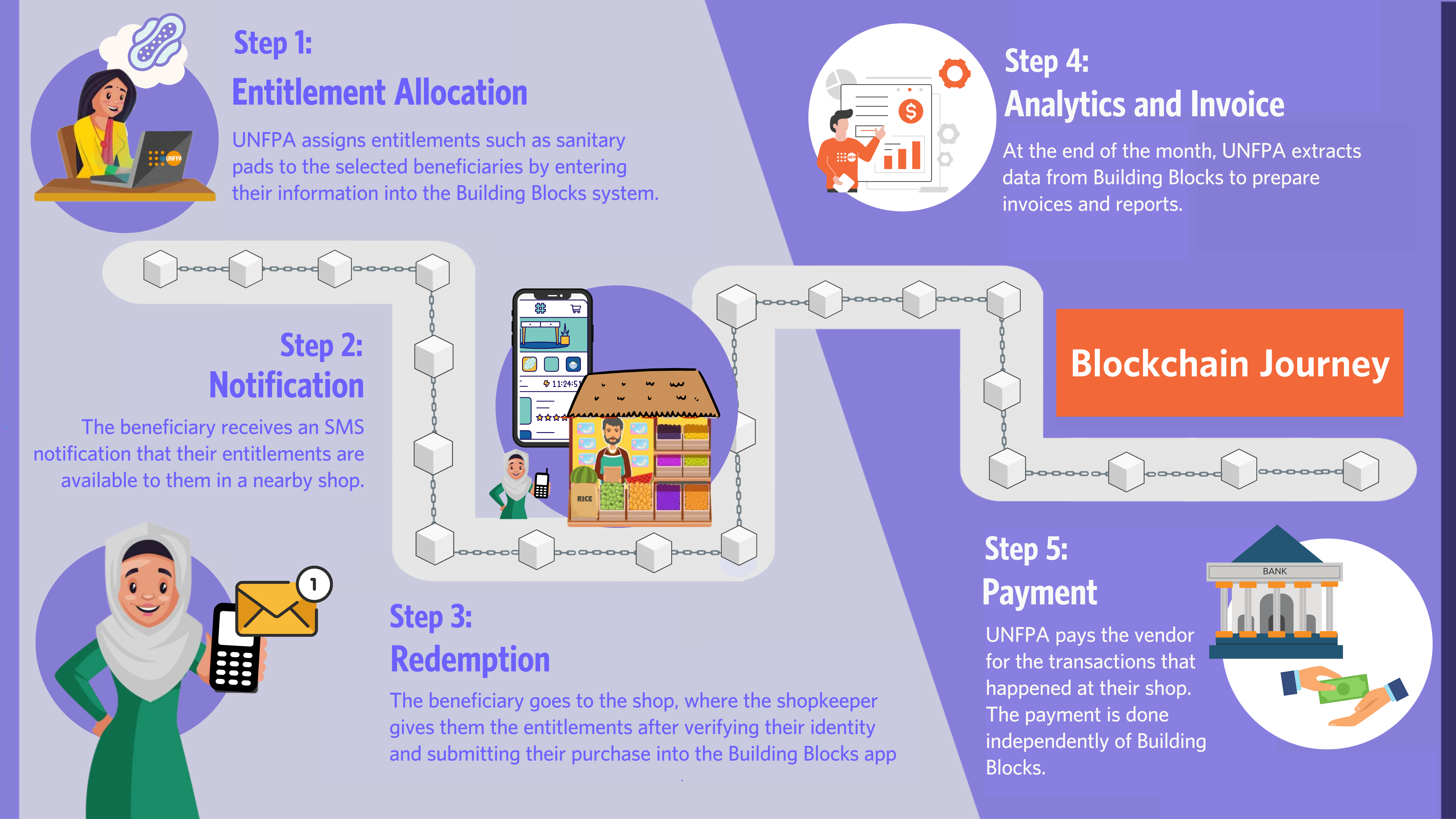
Using the Building Blocks application helps the beneficiaries receive support more efficiently and provides UNFPA a more reliable way of tracking the aid distribution process. Infographic: UNFPA Bangladesh
Asma and her 15-year-old daughter, Rumi, were both selected as beneficiaries of the project. After suffering immense hardships during the first two years of the COVID-19 pandemic, the support has provided some much needed relief for the family.
“I could not continue my work as a domestic helper when the COVID-19 pandemic began. I did not know what to do, where to go or how to make money,” recalls Asma who has been the sole breadwinner of the family for a decade now. The situation rapidly got so bad that she could no longer afford to pay for the education of both Rumi and her 9-year-old brother who studies and lives in a madrasa further away.
She tried to be creative in ensuring that both her children could continue her studies. “Since women these days are driving auto-rickshaws, I decided that I would try that as a way of making money. However, I eventually realized that I could not pursue this, as I could not afford the driving teacher’s salary and other expenses involved with the training,” Asma explains.
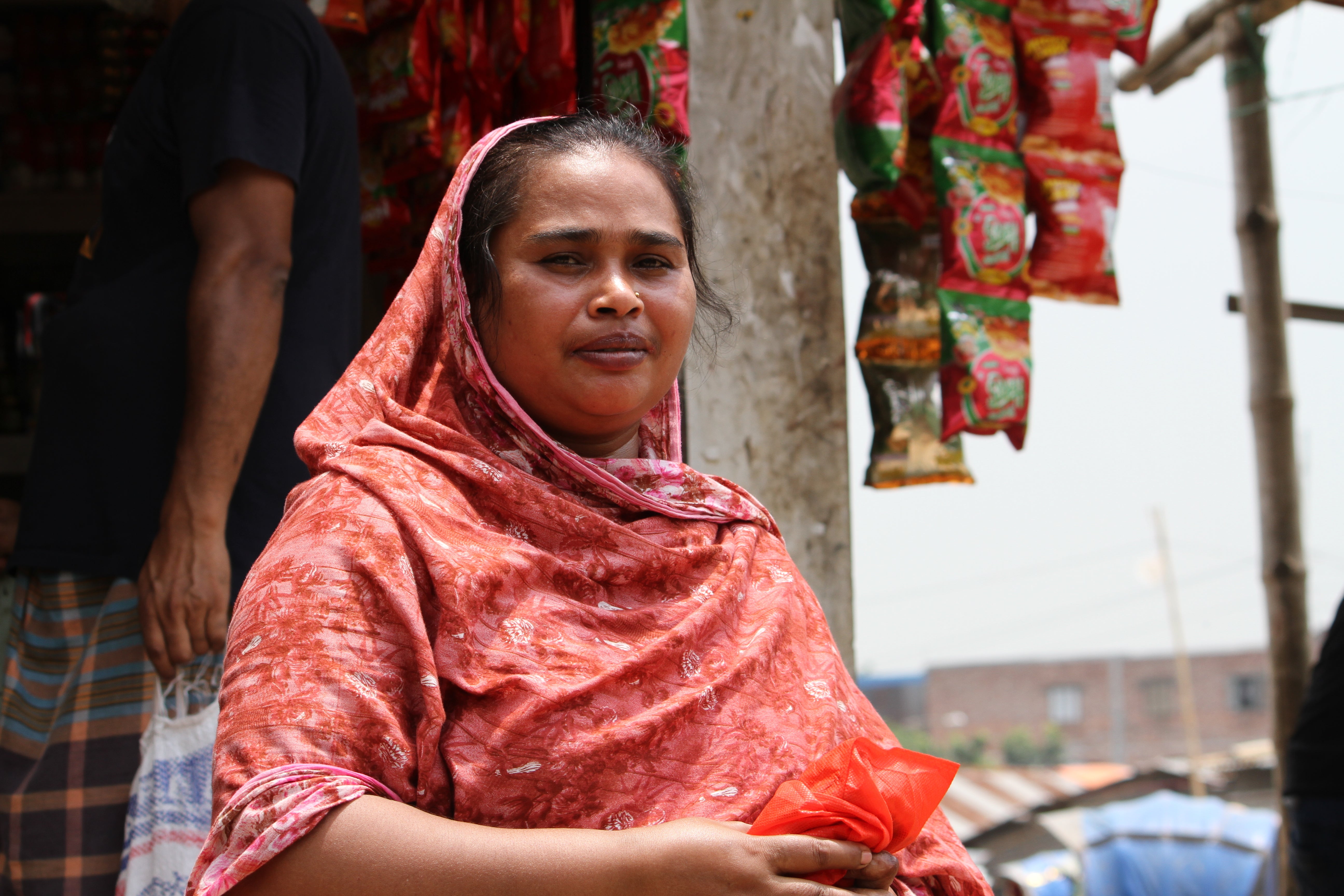
The financial hardships she faced during the COVID-19 pandemic forced Asma to make some of the most difficult decisions in her life. Photo: UNFPA Bangladesh/Alka Ferdous
After painful deliberation, the family decided that Rumi would drop out of school and begin training for a job as a tailor. “I understood that my mother just could not afford both of our education. If I would not help her as her older daughter, who would? That’s why I decided that I would support my mother by getting a job and contributing to the family expenses. In any other circumstances, I would have of course wanted to continue my studies,” Rumi says.
Rumi has now been earning her own income as a tailor for 8 months. With the support of the project and the COVID-19 situation improving in Bangladesh, the family feels that their worst hardships are beginning to be behind them. “Every time we receive the message [that the products are ready for pick-up] on my mother’s phone, we feel so excited! Not only has the project helped us to save on expenses, but the pads we are receiving are much better quality than what my mother could afford to buy before!” Rumi shares.
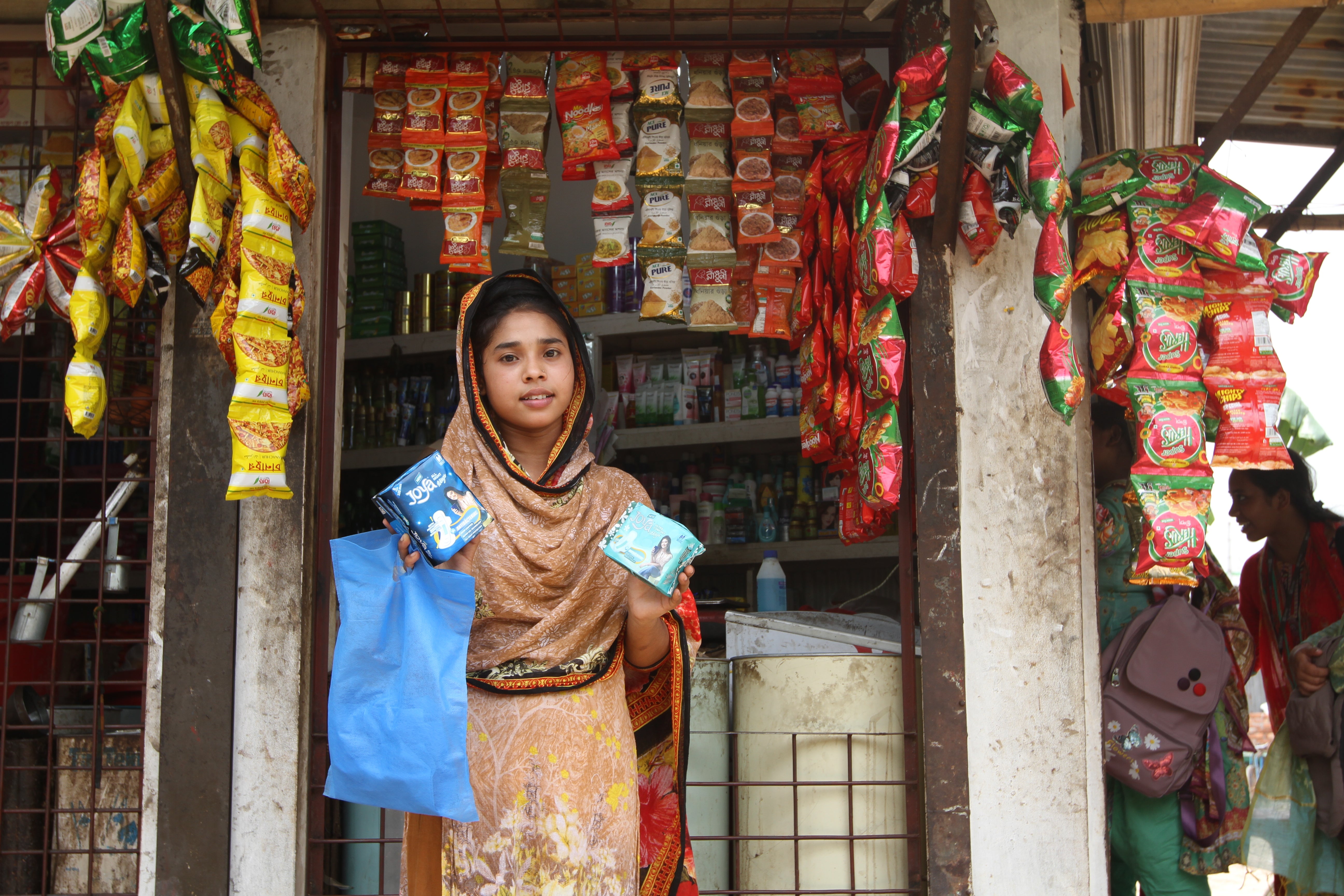
Rumi feels that receiving the products each month has taken a lot of pressure away from her family. Photo: UNFPA Bangladesh/Juho Valta
Despite the painful decisions that have been made, the bond between Asma and Rumi has remained strong. Since childhood, Rumi always felt comfortable discussing sensitive issues with her mother. “When I started menstruating, I immediately asked my mother for her support and she guided me on how to manage it in a hygienic way. Despite her money troubles, mom also always tried to make sure I had pads or cloth I could use during my period,” she says.
Asma also has also made it a point to instill in Rumi the confidence to never feel ashamed about her needs as a woman. “Sometimes when we go and pick up the pads together, there may be some young boys who chuckle about it. Let them laugh. This is our need and we need to care of it without ever feeling embarrassed about it,” she states with confidence.
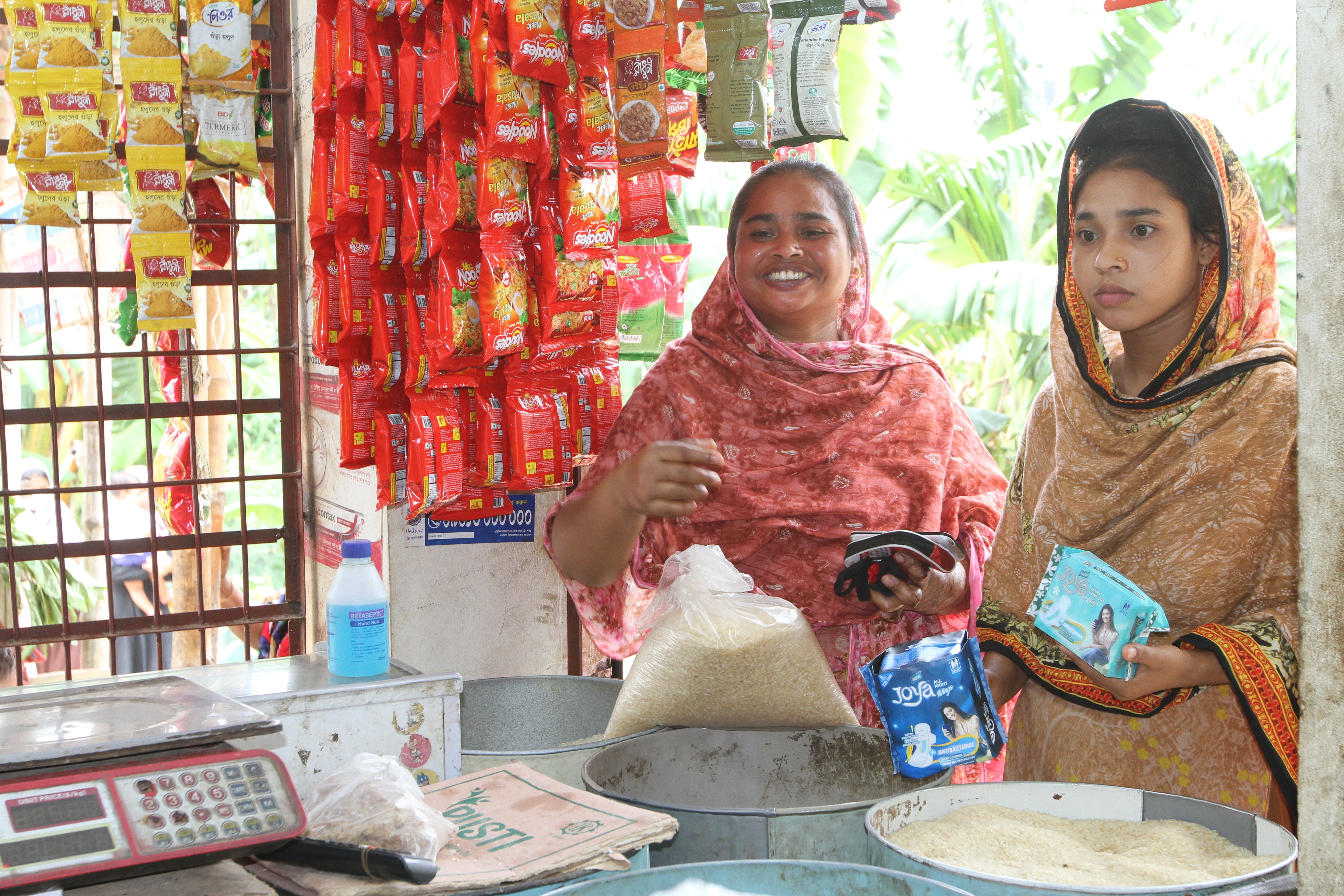
Each month, Asma and Rumi often go together to pick up the menstrual pads and food items assigned to them by the initiative. Photo: UNFPA Bangladesh/Alka Ferdous
Asma’s spirit exemplifies the theme of Menstrual Hygiene Day this year: “Making a menstrual hygiene a normal fact of life by 2030”. In Bangladesh and around the world, millions of women and girls continue to face barriers to participating in everyday life due to misconceptions regarding menstruation.
By improving access to menstrual health products, information and adequate sanitation facilities across the country through various initiatives, UNFPA is committed to making sure that no woman or girl in Bangladesh has to feel they are being held back simply because they menstruate.'
Read our staff member explains more about the project here.
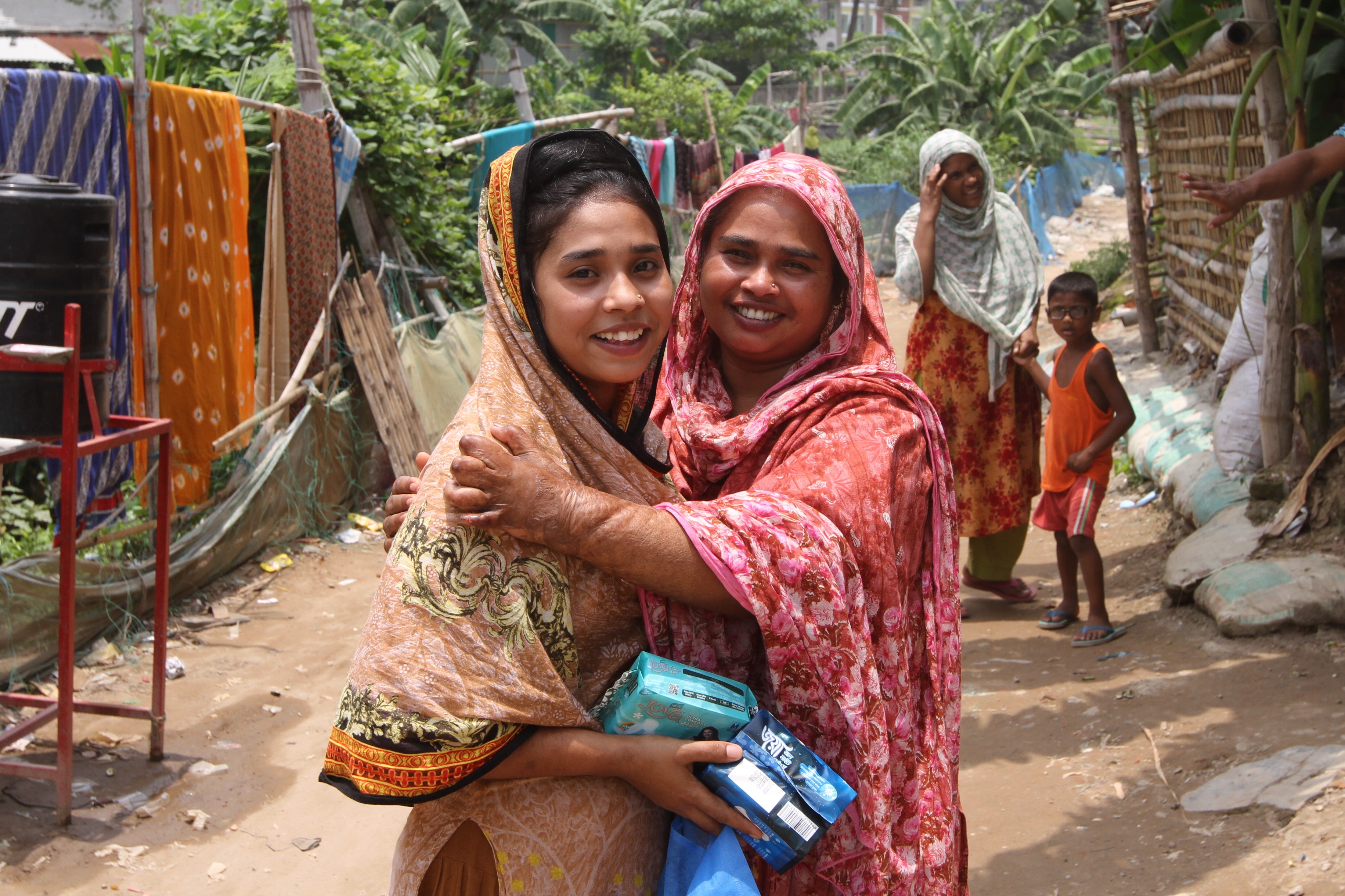
Despite the difficulties, Asma’s and Rumi’s bond remains stronger than ever. Photo: UNFPA Bangladesh/Juho Valta

